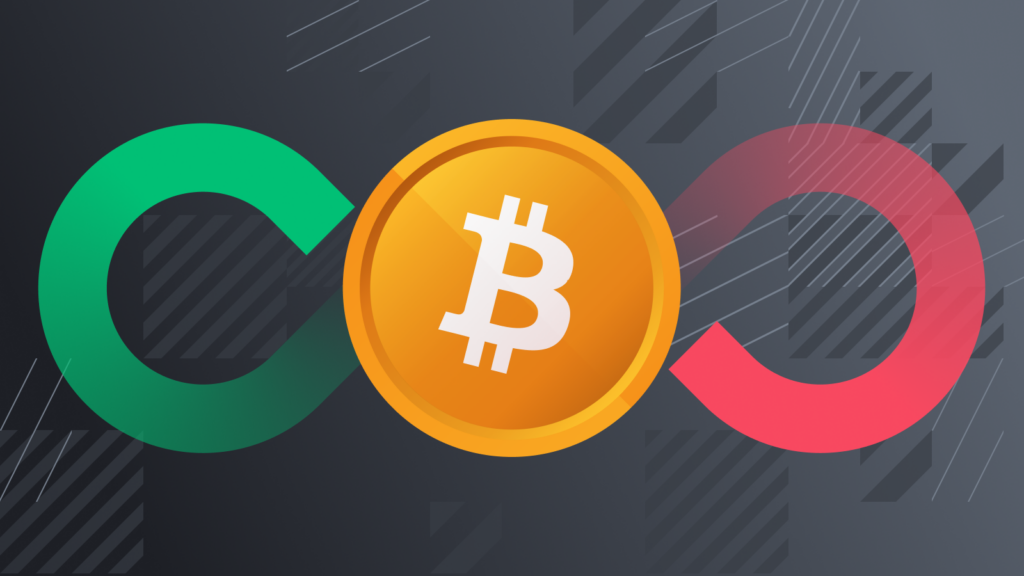What Are Perpetual Futures Contracts In Cryptocurrency?

Perpetual contracts, also known as perpetual swaps, are a type of derivative contract that allows traders to speculate on the future price of an asset without an expiration date. Unlike traditional futures contracts, which have a set expiry date and settlement price, perpetual contracts have no expiry and are constantly adjusted by a mechanism called the funding rate.
Perpetual contracts are popular among cryptocurrency traders because they offer several advantages, including:
- Leverage: Perpetual contracts allow traders to control a larger position with less capital. This can be a great way to magnify profits, but it also amplifies losses.
- Hedging: Perpetual contracts can be used to hedge against the risk of adverse price movements in the underlying asset. For example, a trader who owns a large amount of Bitcoin could use perpetual contracts to hedge against the risk of a Bitcoin price decline.
- Arbitrage opportunities: Perpetual contracts can be used to arbitrage price differences between different exchanges. This can be a profitable strategy, but it requires careful monitoring of market conditions.
However, perpetual contracts also involve some risks, including:
- Liquidation: If the price of the underlying asset moves against you, you could be liquidated. This means that you would be forced to sell your position at a loss.
- Funding rate risk: The funding rate can have a significant impact on your profits or losses. If you are on the wrong side of the funding rate, you could incur substantial losses.
- Regulatory uncertainty: Perpetual contracts are not regulated in many jurisdictions. This means that there is no guarantee that your trades will be executed fairly.
Overall, perpetual contracts are a powerful trading tool that can be used to speculate on the future price of an asset, hedge against price risk, and arbitrage price differences. However, they also involve some significant risks. Before trading perpetual contracts, it is important to understand the risks involved and to have a sound trading plan.
How do perpetual futures contracts work?
Perpetual futures contracts are derivative instruments that allow traders to speculate on the price of an underlying asset without actually owning it. They are similar to traditional futures contracts, but with one key difference: perpetual futures contracts do not have an expiration date. This means that traders can hold their positions indefinitely without worrying about rolling over their contracts into new ones.
Perpetual futures contracts are typically used for speculation, but they can also be used for hedging. Hedgers use perpetual futures contracts to offset their exposure to price fluctuations in the underlying asset. For example, a farmer might buy perpetual futures contracts on corn to protect himself from a decline in the price of corn.
Perpetual futures contracts are traded on exchanges, and their prices are determined by supply and demand. The price of a perpetual futures contract is typically very close to the spot price of the underlying asset. However, there can be a slight difference between the two prices, which is known as the basis. The basis can be positive or negative, and it can fluctuate over time.
Perpetual futures contracts are settled in cash, which means that the buyer and seller of the contract do not actually exchange the underlying asset. Instead, they exchange cash based on the difference between the contract price and the spot price of the underlying asset.
Perpetual futures contracts are a complex financial instrument, and they carry a high degree of risk. Traders should carefully consider their risk tolerance before trading perpetual futures contracts.
Here is a summary of the key characteristics of perpetual futures contracts:
- No expiration date: Traders can hold their positions indefinitely.
- Cash settlement: Contracts are settled in cash, not with the underlying asset.
- Funding rate mechanism: A mechanism used to keep the contract price in line with the spot price.
- Leverage: Traders can use leverage to magnify their profits or losses.
- High risk: Perpetual futures contracts are a complex and risky financial instrument.
What are the pros and cons of perpetual futures contracts?
- No expiration date: Traders can maintain positions indefinitely without worrying about contract expiry. This can be beneficial for traders who want to hold positions for the long term.
- Greater liquidity: Perpetual futures contracts are often more liquid than traditional futures contracts, which can mean tighter spreads and lower transaction costs.
- Leverage: Perpetual futures contracts allow traders to use leverage, which can magnify both profits and losses.
- Hedging opportunities: Perpetual futures contracts can be used to hedge against spot market risks.
- Profit potential even in stable markets: Perpetual futures contracts can be used to profit from market movements even when the underlying asset price is not moving significantly.
Cons of perpetual futures contracts:
- Leverage can amplify losses: As with any leveraged instrument, leverage can amplify losses as well as profits. This means that traders can lose more money than they invested if the market moves against them.
- Margin requirements and liquidation risks: Perpetual futures contracts have margin requirements, which means that traders must keep a certain amount of money in their account to cover potential losses. If the margin falls below the required level, the trader’s position may be liquidated.
- Funding rates can be costly: Perpetual futures contracts use a funding rate mechanism to keep their prices aligned with the spot market. This funding rate can be positive or negative, and it can be a significant cost for traders who hold positions for long periods of time.
- Unregulated: Perpetual futures contracts are not regulated by traditional financial authorities, which means that there is less protection for traders.
- Market manipulation risks: Perpetual futures contracts are susceptible to market manipulation, which can lead to artificial price movements.
Overall, perpetual futures contracts are a complex trading instrument that can be risky. Traders should carefully consider the risks before trading perpetual futures contracts.
Perpetual futures vs. traditional futures
Perpetual futures and traditional futures are both types of derivative contracts that allow traders to speculate on the future price of an asset. However, there are some key differences between the two.
Expiration date
- Traditional futures contracts have a specific expiration date, at which point the contract is settled and the underlying asset is delivered.
- Perpetual futures contracts, on the other hand, do not have an expiration date. This means that they can be held indefinitely.
Settlement
- Traditional futures contracts can be settled either physically or financially. Physical settlement means that the underlying asset is actually delivered to the buyer. Financial settlement means that the buyer and seller exchange cash instead of the asset.
- Perpetual futures contracts are always settled financially.
Funding rate
- Perpetual futures contracts use a funding rate mechanism to keep the price of the contract in line with the price of the underlying asset. The funding rate is paid by traders who are holding a long position (i.e., betting that the price of the asset will go up) to traders who are holding a short position (i.e., betting that the price of the asset will go down).
- Traditional futures contracts do not use a funding rate mechanism.
Advantages of perpetual futures
- Perpetual futures contracts can be held indefinitely, which means that traders can avoid the hassle and expense of rolling over positions.
- Perpetual futures contracts are often more liquid than traditional futures contracts, which means that they can be traded more easily.
- Perpetual futures contracts can be used to hedge against price movements in the underlying asset.
Disadvantages of perpetual futures
- Perpetual futures contracts are more complex than traditional futures contracts, which can make them more difficult to understand and trade.
- Perpetual futures contracts are subject to the funding rate mechanism, which can add an additional layer of complexity to trading.
- Perpetual futures contracts are often traded with high leverage, which can amplify both profits and losses.
Which type of futures contract is right for you?
The best type of futures contract for you will depend on your individual needs and trading style. If you are looking for a simple and straightforward way to speculate on the future price of an asset, then traditional futures contracts may be a good option for you. However, if you are looking for a more flexible and liquid way to trade, then perpetual futures contracts may be a better choice.
Here is a table summarizing the key differences between perpetual futures and traditional futures:
In Conclusion:
Choosing between perpetual futures and traditional futures depends on your specific trading needs and preferences. If you prefer simplicity and a straightforward approach, traditional futures contracts may be the right choice for you. On the other hand, if you value flexibility and liquidity in your trading, perpetual futures contracts offer a more suitable option. It is important to carefully consider your individual requirements and trading style before making a decision.







